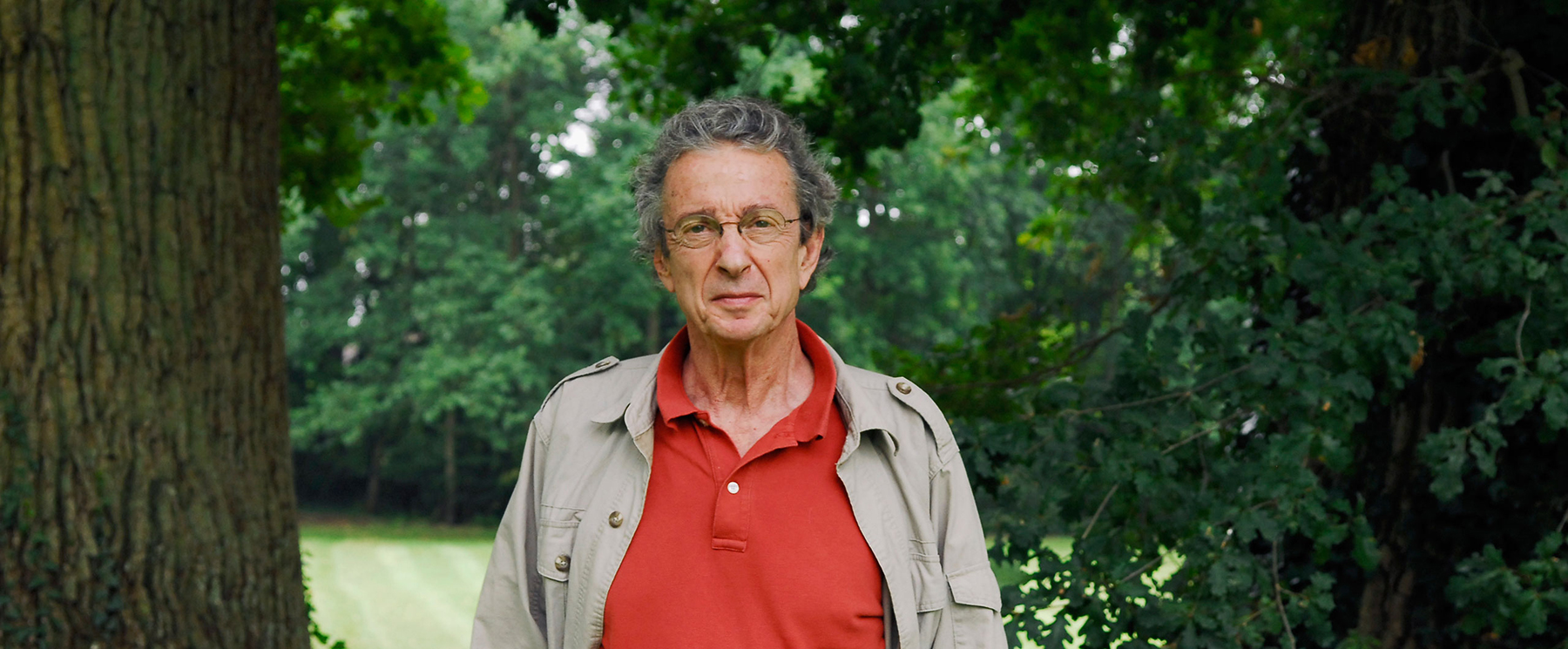Rather than reflect on his poems or essays, which are still here for anyone to read or reread, I want to say a few words about our friendship, one whose nature, though central, is hard to capture, apparently uneventful as it was. Everything that happened happened internally.
We met at a cafe through a mutual acquaintance. At first what impressed me was his tall stature, but then immediately there was his open face, ever animated by his watchful eye and a certain spirit that inhabited it all.
Immediately after we met, Charlie invited me to a party at his home in Paris, in the lively neighborhood where he lived with his wife, Catherine. It was the first of many such parties, where we skirted a small cosmopolitan crowd, North American writers, artists, publishers, friends from different countries. He had prepared large salads, happily invited us to dinner. Surrounded by his guests, he spoke loudly, told anecdotes, made us laugh often. But he also liked to linger with each of us, ask questions, discuss. This trait—an invariable gift for intimacy—characterized him: he was able to be fully present to the person with whom he spoke, to listen carefully and only say, in return, what he really thought. We, his guests, got acquainted with each other, but we did not often see one another in his absence. I realize that he was a very communicative person—knowing his need for solitary concentration and considering his melancholy temperament, one would have expected the opposite. Another key element of the atmosphere at such gatherings was the clear evidence of the love Charlie and Catherine had for one another, a love that generated, through its guarded but mutually admiring gestures, a feeling of welcome to the rest of us.
Impatient, he never liked just “hanging out.” His restless spirit was inhabited by a sort of gay despair.
Later I saw them in another apartment in Paris, and visited them in Normandy, and met them on occasion in New York. He would also come to see me in my summer house. For years, after his annual periods in Princeton, at the time of his return to Paris, we would meet at a cafe in Saint Germain, at the Odeon, to talk about our projects, the books we had read in the meantime, the films we had seen, our common friends. He laughed gently about my propensity to publish “yet another book.” Then suddenly, he would get up, sensing the end of our conversation and leave quickly; impatient, he never liked just “hanging out.” His restless spirit was inhabited by a sort of gay despair. Always full of insightful observations (as in his poems), he remained at the same time very lucid, even amused, on the subject of human absurdity. He was quite critical of the political customs in his country of birth, where he spent more and more time teaching and, when he became ill, healing.
We remained friends for decades.
I can still see his tall figure at different stations where he would sometimes pick me up by car—perfectly punctual, perfectly ready for action. He was not much older than I, but I regarded him as a sort of guardian angel or older brother, able to protect me, especially against his fellow Americans, when I became the object of any disparagement or critical aggression. I was more vulnerable than he, and seemed always ready to lean against his shoulder to complain when I had the impression that, strangely, everyone did not like me. Charlie didn’t have the same illusions concerning himself, but he would agree to intervene on my behalf. I saw myself as more versatile, more urgent than he—more inclined to get a job done and move on to the next thing. He, on the other hand, had a capacity to linger long over details, digging patiently to discover unsuspected depths. My own promiscuous curiosity seemed shallow to me by contrast and weighed on me; the quick summary has always been hard to resist, though in my friendship I think I overcame that inclination.
None of this, I suppose, is very surprising. Poets, and normally those who admire them, prefer the extraordinary, the sublime, the very best, and reject—leave it for the ignorant masses—the mundane, the common, the world down there. But really Charlie was not that kind of poet; he knew how to find the valuable in the futile, knew instinctively how to convert the daily mud into gold. I never heard any immortal formulas come from his mouth. That was not his style.
My heart is torn when I think that I will never hear the phone ring followed by his distant voice saying inimitably my name by spreading the emphasis on both syllables, ending with a question mark, and somehow touching me closely. Sometimes I find myself talking to him, but he doesn’t answer.
Tzvetan Todorov (1939–2017) was a philosopher, literary theorist, and historian. He was born in Bulgaria and emigrated to France in 1963. He taught at the National Center for Scientific Research in Paris and later helped to found the Center for Arts and Language Research. He was the author of many of books, including The Conquest of America: The Question of the Other, Facing the Extreme: Moral Life in the Concentration Camps, and On Human Diversity.
YOU MAY ALSO LIKE:
An Excerpt from John Kaag’s American Philosophy: A Love Story: Transcendental Arguments and Love
Unforbidden Pleasures: Adam Phillips & Ileene Smith Discuss Agency and Desire
This article originally appeared in Salmagundi, No. 190/191, in April 2016.

